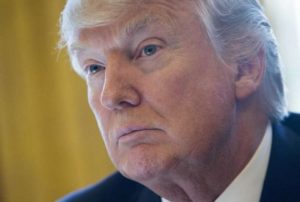Special to WorldTribune.com
Chinese officials and analysts said Beijing remains “uncertain” about the Trump administration and its strategy on the two Koreas.
“The prolonged silence” from the Trump administration “is making Beijing increasingly uncertain and uncomfortable, and complicating its plans to reduce the threat that the United States and its network of alliances in Northeast Asia poses to Chinese security and strategic influence,” Yun Sun wrote for 39north.org on Feb. 9.

Still, China expects President Donald Trump to seek its support on the North Korea issue and is eagerly “waiting for Washington to engage so that China can bargain for its preferred outcomes,” Yun wrote.
During his presidential campaign, Trump suggested he would be willing to negotiate with North Korea directly. That scenario has become more uncertain in recent months, “especially given the hawkish instincts of President Trump and his national security team,” Yun wrote.
“If the United States and North Korea decide to move ahead with a deal, the improvement of relations between them and the shifting balance of power on the Korean peninsula will diminish what China perceives as its leverage and strategic influence. Therefore, if the Trump administration unilaterally initiates bilateral talks with North Korea, it will be met with suspicion rather than enthusiasm from Beijing.”
Chinese President Xi Jinping had placed his hope on South Korean President Park Geun-Hye to improve China’s strategic position, but Park is currently embroiled in an impeachment trial that will decide whether or not she will serve out the remainder of her term.
At the heart of Xi’s strategy “was an effort to turn South Korea into China’s ‘pivotal’ state in Northeast Asia, thereby undermining the U.S. alliance system in the region and diminishing its threat to China,” Yun wrote. “As a result of Sino-ROK rapprochement, senior-level visits soared, bilateral economic ties strengthened and many South Koreans questioned the utility and future of the U.S.-ROK alliance.”
Yun continued: “In an ideal scenario, China’s new realignment strategy would defeat the U.S.-orchestrated ‘Northeast Asia NATO’ based on America’s alliances with Japan and Korea, and counter the U.S.-Japan alliance with an alignment between China and both Koreas.”
North Korea’s fourth nuclear test, which it conducted in January 2016, “entirely derailed China’s scheme,” Yun wrote.
Read Complete Article . . . Current Edition . . . . Subscription Information
